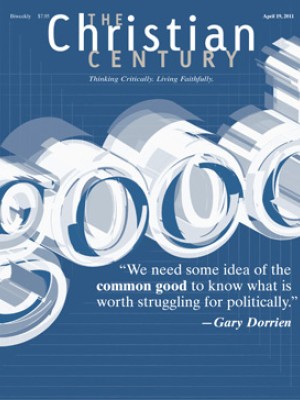Methodists: Drinking still a touchy topic
Pastor James Howell knew he had a problem on his hands when several
teenagers arrived at a church dance drunk and had to be taken from the
church by ambulance to be treated for alcohol poisoning. Starting in
2009, he urged his flock at Myers Park United Methodist Church in
Charlotte, North Carolina, to give up drinking for Lent and donate the
money they would have spent on booze to a "spirit fund."
To date,
Myers Park has raised more than $34,000 for local substance abuse
programs, and seven parishioners have sought treatment for alcoholism.
"It
isn't that alcohol in and of itself is bad; Jesus drank wine," Howell
said. "We emphasize the role it plays in our lives." Part of that
discussion, Howell and others have found, involves acknowledging a fact
that some Methodists prefer not to talk about: some Methodists
drink—even if many don't like to admit it.
Read our latest issue or browse back issues.
From teetotaling
Baptists to Episcopalians who uncork champagne in the parish hall,
alcohol use can be tricky for religious groups to deal with—especially
during holy periods or holidays.
There are no rules on alcohol for
Catholics during Lent, although Ash Wednesday and Good Friday are
mandatory days of penance and abstinence. Muslims—those who drink
alcohol at all—are called to abstain from it during Ramadan. But to
celebrate Purim, Jews are encouraged to drink—and for many Christians
Christmas Eve includes spiked eggnog.
Unlike prohibition-minded
Mormons or Catholics who belly up to the bar on St. Patrick's Day,
Methodists—the nation's second-largest Protestant denomination—took a
more ambiguous stance. Now the denomination's General Board of Church
and Society is following Howell's lead and is pushing a churchwide
Alcohol Free Lent campaign.
The 7.8-million-member UMC has long
had a love/hate relationship with alcohol. For decades the
denomination—at least officially—strongly supported temperance. The
father and son who founded the Welch's grape juice company were not only
good Methodists but also savvy businessmen who saw a huge market in
pushing juice for communion to temperance-minded churches.
In the
years since, Methodists have trended toward a more liberal stance. While
the UMC still encourages abstinence, in 2008 the church's Social
Principles were revised to allow for "judicious use with deliberate and
intentional restraint, with scripture as a guide."
The result has been a somewhat uneasy relationship between Methodists and the bottle.
"We
are very uncomfortable acknowledging that Methodists drink," said
Cynthia Abrams, a minister who works on alcohol, addictions and
health-care issues for the Washington-based social policy agency. "This
is a campaign that opens the doors to conversation, a way to talk about
alcohol, about drinking, its impact on young people, on our own
perspectives and to dialogue about what that means for us as a church
today."
Founded in 18th-century England by John Wesley, Methodism
grew rapidly among working-class miners and factory workers who often
drank heavily. In response, Methodism staked out a position of
temperance early in its history, explained historian Ted Campbell of
Southern Methodist University's Perkins School of Theology.
"The
General Rules of 1743 ruled out buying or drinking 'spirituous liquors'
except in cases of extreme necessity, meaning medicinal use," Campbell
said. "It was not total abstinence, but abstinence from the hard stuff,
whiskey and gin in particular."
After the Civil War, as Methodism
expanded in the United States, Methodists—women especially—began to
steer the denomination toward a harder line as the temperance movement
gained steam. And by the early 20th century, the church endorsed
Prohibition and required Methodist ministers to pledge abstinence from
alcohol. It wasn't until the 1950s and '60s that the church began to
soften that stance.
For some conservatives, the churchwide Alcohol
Free Lent campaign is a welcome reminder of the Methodists' temperance
heritage—"a brief flicker of remembrance of those origins," said Mark
Tooley, president of the Institute on Religion and Democracy. "For
several decades the board has mostly neglected its call, so it's
positive that at least during Lent they are upholding that," said
Tooley, whose Washington-based institute is a frequent critic of the UMC
General Board of Church and Society.
The issue is still a
rallying cry for conservatives, who recently lost a legal fight to make
the Church and Society agency adhere to its charter and focus
exclusively on alcohol and temperance issues.
More than a simple
say-no-to-booze campaign, Alcohol Free Lent is about reflection, said
Abrams. "Somehow there is this perspective that because the church
mentions abstinence we are saying people cannot drink," she explained.
That's
not the case. Instead, the campaign seeks to encourage an open dialogue
on a touchy subject. And that, Abrams said, "is a very Methodist
approach." —RNS




